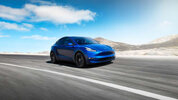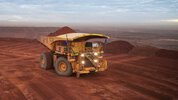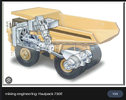JohnDe
La dolce vita
- Joined
- 11 March 2020
- Posts
- 4,615
- Reactions
- 6,845
I have noticed a lot more Toyota advertising lately, I wonder if it has something to do with trying to counter act the poor reports of its EV strategy.
Toyota’s Electric Vehicle Strategy Still Seems Flawed
By Nick Grous
Director of Research, Autonomous Technology & Robotics
ARK remains unimpressed. Toyota still seems dedicated to solid-state batteries that will deliver 1,000 km, or ~620 miles of range by 2027, five years later than its original forecast six years ago.2 What, we wonder, will be the cost of solid-state batteries compared to the low-cost battery chemistries to which the industry will have shifted in 2027?
In our view, solid-state batteries will enable new capabilities and gain traction in devices with higher cost components. Drones, aviation, and wearables like augmented reality (AR) headsets, for example, are applications that could reach scale with solid-state batteries before costs and prices decrease and enable other applications. While Toyota announced other manufacturing innovations last week that seem promising, its EV strategy does not seem destined for mass market success.





